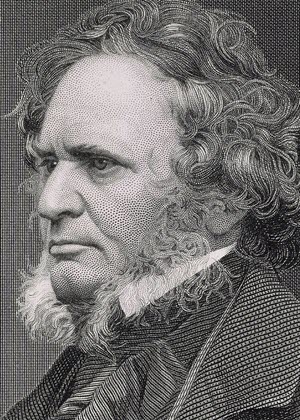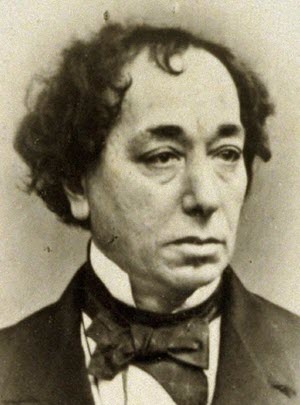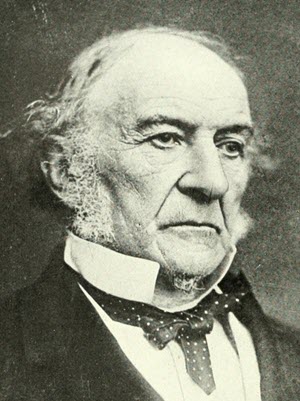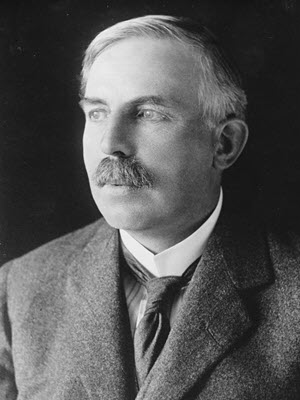| |
Date |
Event(s) |
| 1 | 1837 | - 20 Jun 1837—22 Jan 1901: Queen Victoria's reign

Victoria was Queen of the United Kingdom of Great Britain and Ireland from 20 June 1837 until her death. On 1 May 1876, she adopted the additional title of Empress of India.
Victoria inherited the throne at the age of 18, after her father's three elder brothers had all died leaving no surviving legitimate children. She became a national icon who was identified with strict standards of personal morality. Victoria married her first cousin Prince Albert. After his death in 1861, Victoria plunged into deep mourning and avoided public appearances. As a result, republicanism temporarily gained strength but in the latter half of her reign, her popularity recovered. Her Golden and Diamond Jubilees were times of public celebration.
|
| 2 | 1866 | - 28 Jun 1866—25 Feb 1868: Earl of Derby - 39th British Prime Minister

Edward George Geoffrey Smith-Stanley, 14th Earl of Derby, (29 March 1799 – 23 October 1869) was a British statesman, three-time Prime Minister of the United Kingdom and, to date, the longest-serving leader of the Conservative Party. He was known before 1834 as Edward Stanley, and from 1834 to 1851 as Lord Stanley. He is one of only four British prime ministers to have three or more separate periods in office. However, his ministries all lasted less than two years and totalled three years and 280 days.
Derby returned to power for the third and last time in 1866. This administration was particularly notable for the passage of the Reform Act 1867, which greatly expanded the suffrage but which provoked the resignation of three cabinet ministers including the Secretary for India and three-time future Prime Minister, Lord Cranborne (later Lord Salisbury).
|
| 3 | 1868 | - 27 Feb 1868—1 Dec 1868: Benjamin Disraeli - 40th British Prime Minister

Benjamin Disraeli, 1st Earl of Beaconsfield, (21 December 1804 – 19 April 1881) was a British statesman who twice served as Prime Minister of the United Kingdom.
During his first term of office, the Conservatives remained a minority in the House of Commons and the passage of the Reform Bill required the calling of a new election once the new voting register had been compiled. Disraeli's term as Prime Minister, which began in February 1868, would therefore be short.
- 3 Dec 1868—17 Feb 1874: William Ewart Gladstone - 41st British Prime Minister

William Ewart Gladstone (29 December 1809 – 19 May 1898) was a British statesman and Liberal Party politician. In a career lasting over sixty years, he served for twelve years as Prime Minister of the United Kingdom, spread over four terms beginning in 1868 and ending in 1894.
Many reforms were passed during his first ministry, including the disestablishment of the Church of Ireland and the introduction of secret voting. After electoral defeat in 1874, Gladstone resigned as leader of the Liberal Party.
|
| 4 | 1870 | - 1870: Education Act

The 1870 Education Act stands as the very first piece of legislation to deal specifically with the provision of education in Britain. Most importantly, it demonstrated a commitment to provision on a national scale.
The Act allowed voluntary schools to carry on unchanged, but established a system of 'school boards' to build and manage schools in areas where they were needed. The boards were locally elected bodies which drew their funding from the local rates. Unlike the voluntary schools, religious teaching in the board schools was to be 'non-denominational'. A separate Act extended similar provisions to Scotland in 1872.
|
| 5 | 1871 | - 1871: Ernest Rutherford born

Ernest Rutherford was a New Zealand physicist known as the father of nuclear physics.
He received the Nobel Prize in Chemistry in 1908 “for his investigations into the disintegration of the elements & the chemistry of radioactive substances.” He identified & named the Alpha & Beta
|


